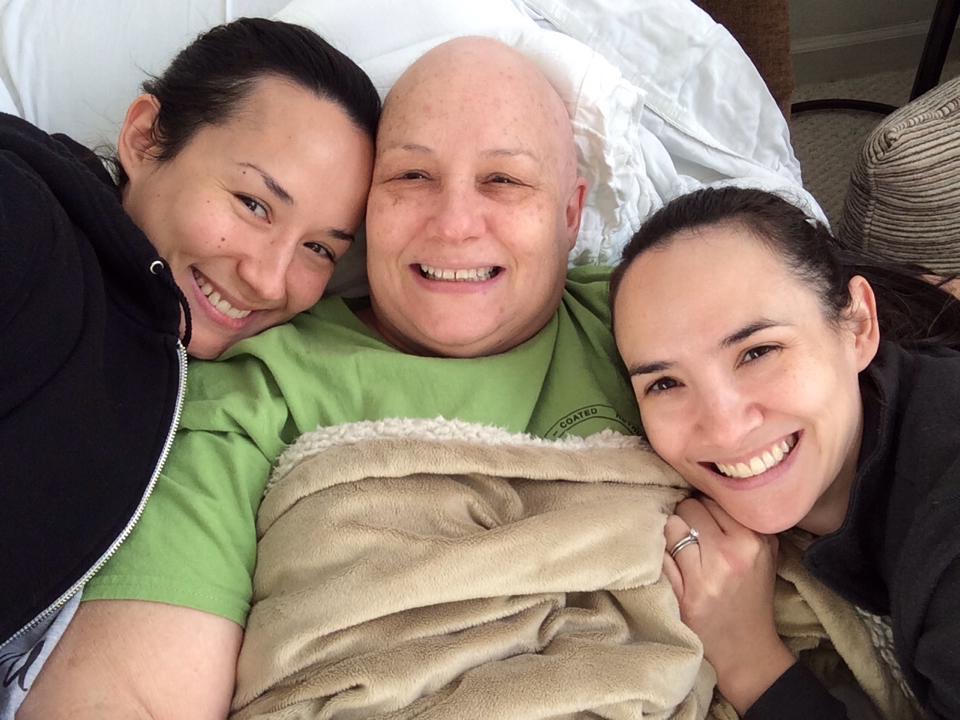
Managing Side Effects
Experiencing side effects from gynecologic cancer treatment is common.
Many patients find substantial relief through integrative therapies, dietary changes, palliative care, and more. Always consult your doctor before trying new methods to ensure they complement your treatment plan effectively.

Palliative care is a medical subspecialty focused on improving the quality of life for those facing serious illness. There is a common misconception that palliative care is the same as hospice care. Palliative care is, in fact, standard for anyone receiving ovarian cancer treatment to help alleviate symptoms. Unlike hospice care, palliative care is available at any stage of treatment. In fact, studies have shown that palliative care delivered at the time of cancer diagnosis improves survival. It aims to alleviate symptoms from either treatment or the illness itself and can have an enormous positive impact on daily life.
Hospice care, by contrast, is care that focuses on a person’s quality of life as they near death. It focuses on treating the person and symptoms rather than the cancer itself. It usually involves a team of health care professionals working together with the patient’s family, who are included in decision-making.
Learn more about hospice care.
Acupuncture and Acupressure
Acupuncture is a traditional Chinese practice, performed by a licensed acupuncturist, in which thin, sterile needles are inserted into the skin on strategic points of the body to relieve pain and a host of other symptoms, including neuropathy; nausea and vomiting; anxiety; depression; fatigue; sleep disturbances; hot flashes; and dry mouth. Acupressure enables patients to administer pressure on their own bodies to relieve symptoms whenever needed.
Learn more about how acupuncture and acupressure can help with symptom management.
Massage and Reiki
Massage by a palliative care specialist can relieve pain, fatigue, nausea, stress, anxiety, and depression. Reiki, a Japanese healing art performed by a practitioner, focuses on energy healing and may not involve touch, helping patients feel relaxed and calm.
Mindfulness, Meditation and Guided Imagery
Mindfulness techniques, such as meditation and guided imagery, help relax the body and alleviate stress and anxiety. These can easily be followed online from home, whenever is most convenient for you.
Dealing with diagnosis, the end of treatment, follow-up scans, and other key milestones in your cancer journey can feel overwhelming. The emotional impact can be enormous, and can sometimes blindside you. Learn more about the importance of getting support, and dealing with the complicated feelings that may arise.
Connecting with others who understand what you are going through can also help you feel less alone, and mental health benefits may even positively impact your physical symptoms. OCRA’s Staying Connected Support Series, Woman to Woman Peer Mentor Program, and online community through Inspire are all available to anyone undergoing gynecologic cancer treatment, free of charge.
There is no perfect diet or supplement proven to fight ovarian cancer, but maintaining a healthy, balanced diet is crucial. A nutrient-rich diet supports the immune system and helps your body manage treatment and side effects. Your doctor may recommend specific foods, vitamins, or supplements to alleviate symptoms.
With doctor approval, exercise can benefit ovarian cancer patients. Moderate activities like brisk walking or gentle yoga can boost your energy, relieve pain, enhance mental health, and improve your quality of life. Physical therapy, specifically, offers a structured routine to restore and maintain mobility and strength during and after your treatment and can help improve daily function and quality of life, although there are no specific physical therapy protocols for ovarian cancer.
For gynecologic cancer patients, pelvic floor therapy, also known as pelvic rehabilitation, can be helpful, as side effects from treatment such as chemotherapy, radiation, or surgery, can result in urinary incontinence, constipation or pain during intercourse. In addition, radiation can shorten muscles and connective tissue, making them harder to move. A trained pelvic floor physical therapist can create a personalized treatment plan for you that involves everything from biofeedback, breathing and physical exercises, to massage and dietary advice. Your doctor can refer you to a specialized physical therapist. Learn more about pelvic floor therapy in this video.

Experiencing side effects from gynecologic cancer treatment is common.

A cancer diagnosis can bring up complicated feelings and lots of questions.

Get guidance on treatment and access resources to make informed decisions.
Get email updates about research news, action alerts, and ways to join the fight.